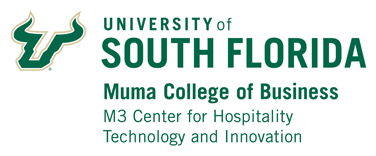Abstract
This study investigates the integration of generative artificial intelligence (GAI) into hospitality and tourism marketing and its implications for industry professionals in the United States. This study employed a mixed methods approach, gathering qualitative insights from 20 professionals and quantitative data from a sample of 163 participants. The qualitative study revealed concerns about data privacy, customer trust, and ethical considerations regarding GAI implementation. However, participants acknowledged its potential to enhance personalization, engagement, and operational efficiency. The quantitative study supported these findings by showing a level of concern about risks but agreement on the benefits of GAI. Additionally, the participants were highly familiar with GAI, highlighting its adaptation to the industry. This study emphasizes the importance of ethical practices in utilizing AI technologies while following established principles and guidelines. Policy implications highlight the necessity for regulations that address legal and social challenges that may arise. Theoretical implications expand the understanding of GAI’s impact on marketing practices, while practical implications guide industry stakeholders.
Keywords
GAI adoption, ethical considerations, data privacy, competitive advantage, hospitality industry
ORCID Identifiers
Usman Khan: https://orcid.org/0000-0002-8824-4012
Kashif Ali Khan: https://orcid.org/0009-0006-4539-7277
DOI
10.5038/2771-5957.3.1.1046
Recommended Citation
Khan, U., & Khan, K. A. (2024). Generative artificial intelligence (GAI) in hospitality and tourism marketing: Perceptions, risks, benefits, and policy implications. Journal of Global Hospitality and Tourism, 3(1), 62-77. https://www.doi.org/10.5038/2771-5957.3.1.1046
Creative Commons License

This work is licensed under a Creative Commons Attribution-Noncommercial 4.0 License
Included in
Hospitality Administration and Management Commons, Marketing Commons, Tourism and Travel Commons


